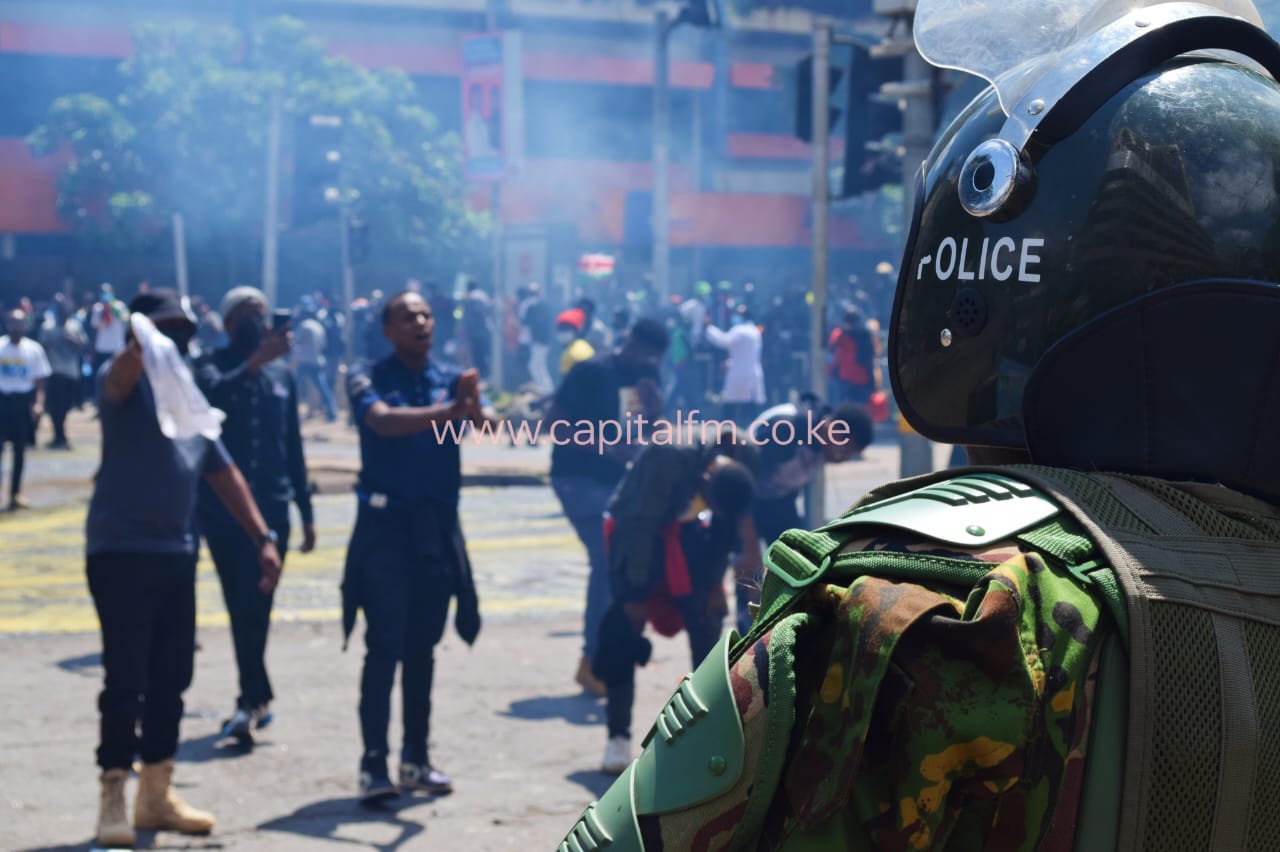
Listen to the People, Respect Demonstrations, Uhuru Tells Ruto » Capital News
NAIROBI, Kenya, June 24 – Former President Uhuru Kenyatta has urged President William Ruto to heed the grievances of Kenyans and respect their right to demonstrate, amid ongoing protests against the Finance Bill 2024.
In a statement, Kenyatta expressed deep sorrow for those who have lost their lives during the demonstrations and advised his successor to embrace dialogue rather than taking a confrontational stance.
“Dear Kenyans, I stand with you and I ask our leadership to embrace dialogue and SPEAK TO THE PEOPLE AND NOT AT THE PEOPLE. I pray for peace and understanding on the part of each and every Kenyan and for all of us to remember that Kenya is bigger than any one of us; there is nothing cast in stone that cannot be changed,” Kenyatta said.
Kenyatta emphasized that ignoring the issues troubling Kenyans would only exacerbate the current situation. He stressed that leaders must recognize that their power and authority are granted by the people.
“Leaders must know that the power and authority they have is donated to them by the people. I, therefore, call for calm and for the leadership to show restraint and do the right thing by listening to the people and not being antagonistic to them,” he stated.
“At this trying time for our country, I want to remind all leaders that they were elected by the people. Listening to the people is not a choice but a mandate enshrined in the principles of our constitution and in the very basis and philosophy of democracy,” he added.
The former Head of State condemned the violence that has erupted during the anti-Finance Bill demonstrations, calling for civility in addressing the issue.
“Violence on either side is not the answer. As your former president, I have felt the weight and the difficulty of leading Kenya. I, therefore, pray for wisdom and civility to be established,” Kenyatta said.
The Finance Bill 2024 that was passed by MPs on Tuesday has sparked widespread outrage, particularly among Kenya’s youth, who feel disproportionately burdened by the proposed tax increases. Protests have erupted across the country, with demonstrators calling for the rejection of the bill, which they argue will exacerbate the economic hardships faced by ordinary Kenyans.
On Tuesday, the situation escalated dramatically when protesters stormed Parliament after the bill was passed, leading to violent clashes with the police. At least four protesters were shot dead, and several others sustained serious injuries as police used live bullets and tear gas to disperse the crowds. The chaos prompted Defence Cabinet Secretary Aden Duale to authorize the deployment of the military to support the overwhelmed police forces.
President Ruto has condemned the violent protests, describing them as treasonous, and has vowed to take tough measures to restore order. In a televised address from State House, Ruto stated, “We shall provide a full and expeditious response to the treasonous events,” and warned those financing the violence of severe consequences.
The government’s response to the protests has drawn criticism from human rights organizations and international observers, who have expressed concern over the use of excessive force and the arbitrary arrests of activists. Reports have also emerged of several prominent social media users being abducted at dawn, hours before the demonstrations, adding to the tension and unrest.
Calls for Dialogue and Restraint
Kenyatta’s call for dialogue and restraint comes at a critical juncture, as the country grapples with the fallout from the controversial Finance Bill and the resulting protests. His message underscores the importance of leadership that listens to and engages with the people, rather than dismissing their concerns.
The former president’s appeal for peace and understanding highlights the need for a unified approach to resolving the current crisis. As Kenyans continue to voice their opposition to the Finance Bill, it is crucial for the government to address their grievances in a manner that respects democratic principles and human rights.
The road to resolving this crisis will not be easy, but with a commitment to dialogue and a willingness to listen to the people, there is hope for a peaceful and just resolution. As Kenyatta aptly put it, “Kenya is bigger than any one of us,” and it is incumbent upon all leaders to ensure that the nation’s interests are prioritized over individual ambitions.
